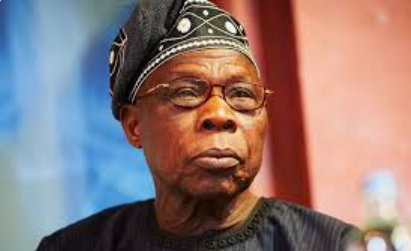Former President Olusegun Obasanjo has shed light on the persistent challenges plaguing Nigeria’s refineries, revealing a history of privatization attempts, alleged mismanagement, and substantial financial losses. Obasanjo’s account centers on the period of his presidency and the subsequent decisions made by his successor, Umaru Musa Yar’Adua, regarding the Port Harcourt, Warri, and Kaduna refineries. These refineries, crucial for Nigeria’s domestic fuel production, have been a source of contention for years, often operating below capacity and requiring significant financial investments for maintenance and upgrades. Obasanjo’s narrative paints a picture of missed opportunities and questionable decisions that have contributed to the refineries’ ongoing struggles.
A key element of Obasanjo’s account is the rejected offer from Aliko Dangote, Africa’s richest man and chairman of the Dangote Group, to manage the Port Harcourt and Kaduna refineries. According to Obasanjo, Dangote had assembled a team and committed $750 million for a public-private partnership to operate the refineries. However, Yar’Adua, influenced by the Nigerian National Petroleum Company Limited (NNPCL)’s assertion that it could manage the refineries effectively, declined Dangote’s offer and refunded the $750 million. Obasanjo expressed skepticism about the NNPCL’s capabilities, highlighting previous failed attempts to engage international companies like Shell in managing the refineries. Shell, according to Obasanjo, had cited concerns about the refineries’ small size, poor maintenance, and pervasive corruption as reasons for their reluctance to participate.
Obasanjo’s disappointment with the handling of the refineries is palpable. He estimates that over $2 billion has been spent on the refineries since 2007, yet they continue to underperform. He contrasts this with his confidence in Dangote’s ability to manage his privately owned refinery successfully, underscoring the difference between private sector efficiency and what he perceives as government mismanagement. This comparison serves as a pointed critique of the NNPCL’s stewardship of the refineries and raises questions about the effectiveness of public management of critical infrastructure.
The NNPCL, in response to Obasanjo’s criticisms, has extended an invitation for him to tour the Port Harcourt refinery, asserting that substantial progress has been made in its rehabilitation. The NNPCL maintains that the work done on the refinery goes beyond routine maintenance and constitutes a complete overhaul designed to meet international standards. They also point to similar work being undertaken at the Warri and Kaduna refineries. Furthermore, the NNPCL emphasizes its transformation from a government corporation to a private entity with limited liability, highlighting a shift towards profitability and a broader focus on integrated energy solutions. This response frames the NNPCL as a reformed and forward-looking organization, distancing itself from the past issues raised by Obasanjo.
The contrasting perspectives of Obasanjo and the NNPCL reveal a deeper debate about the management of Nigeria’s vital oil resources. Obasanjo’s narrative emphasizes the potential benefits of private sector involvement and expresses skepticism about the government’s ability to effectively manage the refineries. He points to Dangote’s success and Shell’s reluctance as evidence to support his argument. The NNPCL, on the other hand, presents a narrative of transformation and progress, emphasizing the investments made and the ongoing efforts to modernize the refineries. They portray themselves as a dynamic and capable organization that is moving beyond the challenges of the past.
The future of Nigeria’s refineries remains uncertain. While the NNPCL projects confidence in its rehabilitation efforts, Obasanjo’s criticisms raise lingering doubts about the long-term viability of these facilities under government management. The exchange between Obasanjo and the NNPCL highlights the complex and often contentious issues surrounding resource management in Nigeria and the ongoing debate about the role of the private and public sectors in driving economic development. The $2 billion figure cited by Obasanjo represents a significant investment that, in his view, has yielded little return. This financial loss, coupled with the missed opportunity of Dangote’s proposed partnership, underscores the need for greater transparency and accountability in the management of Nigeria’s oil resources.














